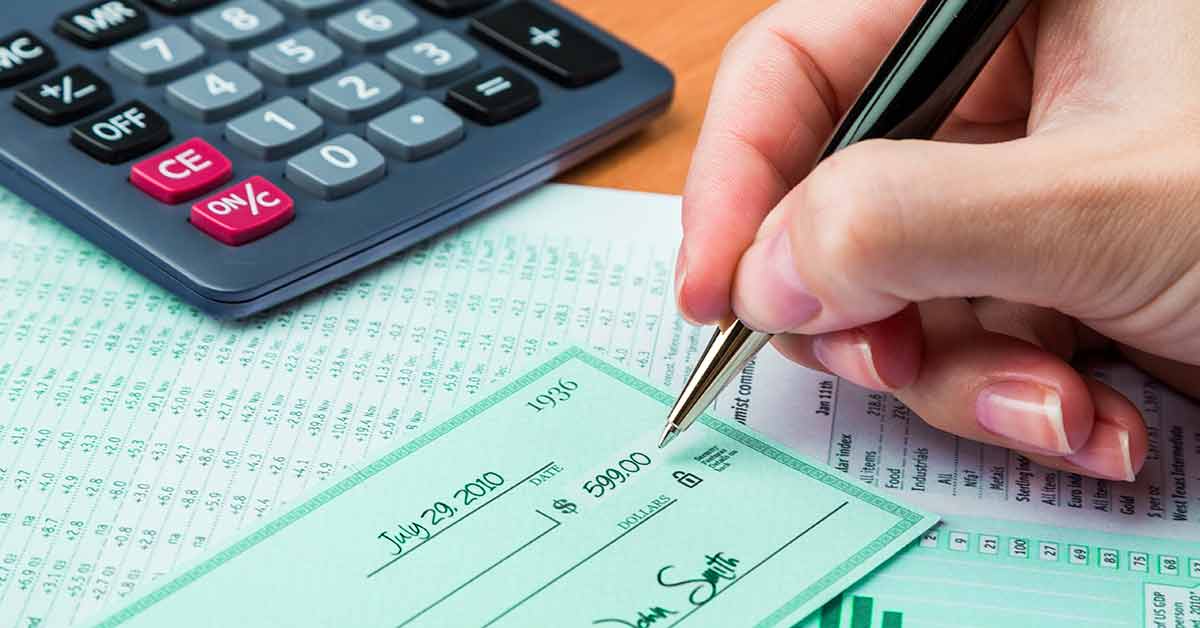What is an Outstanding Check?
The definition of an outstanding check is a check that has been written, but it hasn’t been cashed-deposited by the bank, or otherwise cleared the bank.

An outstanding check can be a personal or a business check. Simply stated, the time between when you write a check and the check clears your bank account is when the check is considered an “outstanding check.”
Why Do Outstanding Checks Matter?
Professional accountants and bookkeepers deal with outstanding checks during reconciliation, a time where they are balancing their ledgers as they approach closing the books for the month.
Individuals need to account for outstanding checks when they balance their checkbooks. When you write a personal check, you should record the date, check number, payee, and amount in your check register. This is very important because your bank balance will be higher than your available funds until the check clears the bank. Recording it in your register right away reminds you that those funds are earmarked for that check.
Balancing your checkbook is akin to what professional accountants do during reconciliation. It’s a way of making sure that you and your bank agree about your account balance and available funds. It accounts for outstanding checks. It can be tricky to balance a checkbook and we have a worksheet with step-by-step instructions to help you.
If you don’t account for outstanding checks properly, then you risk spending the money for the check on something else. This could result in a "bounced check", and you may be charged a “non-sufficient funds” (NSF) fee by your bank. It may also damage your relationship with the vendor or person you gave the check to.
Open a Huntington Checking Account
If you want a basic checking account with no monthly maintenance fee, or an interest-earning checking account, we've got the options that are right for you.
Learn More
What to Do About an Outstanding Check
If you wrote a check and it has been outstanding for a while, you may be wondering, “Do checks expire?” They do expire and that’s why it’s important to record the date you wrote the check.
There are a few things you should do about an outstanding check that you wrote to someone else:
If the check is less than six months old:
- Continue to keep track of the value of the check in your account register.
- Contact the recipient of the check and ask if they lost the check or when they plan on cashing it.
- If they lost the check, contact your bank right away. A thief may try to cash the check.
If the check is older than six months (a stale check):
- Contact the bank and confirm their policy on stale or expired checks.
- Issue a stop payment on the check.
- You’ll need to go to your bank to do this and most banks charge a fee for it.
- This is important even if the bank says they won’t honor it after six months. It’s possible that a teller at the bank may miss the date and process the check anyway.
- After getting the stop payment, mark the entry in your register as voided.
- Contact the recipient of the check and find out how they want to handle it.
- Inform them that you put a stop payment on the check you gave them.
- Find out how they want to be paid.
Should You Write Another Check?
If the outstanding check is less than six months old, you should not write another check. The original check is still valid, and the payee can cash or deposit it. It’s fine to contact the recipient after a few weeks to find out if they’ve lost the check or when they plan on cashing it. This may nudge them into depositing the check. If they can’t get to the bank, you may want to ask them to return the check to you and you can pay them using another method.
If the outstanding check has expired, you may want to write another check; however, it’s possible that this check will go stale, too, and that would prolong the situation. When you ask them how they want to be paid, try suggesting a money order, cashier’s check, or cash. You can ask if they’re willing to deduct the stop payment fee from the original amount. They may not agree to that, but it’s worth asking.



